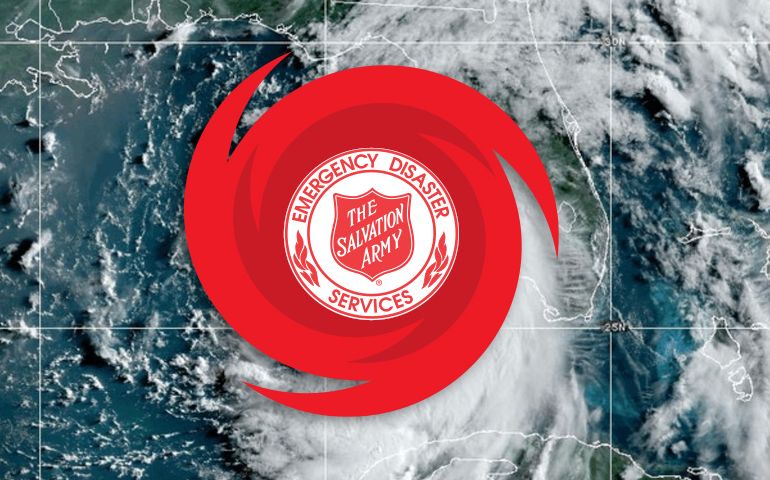The Salvation Army of North & South Carolina Stands Ready for Tropical Storm Debby
Shelley Henderson | shelley.henderson@uss.salvationarmy.org

Charlotte, NC (August 5, 2024)--With Tropical Storm Debby's slow advance northward through Florida and Georgia toward the Carolinas, Salvation Army Emergency Disaster units in North and South Carolina are proactively preparing for service. Salvation Army locations along the South Carolina coast are preparing to serve meals to dedicated teams at county emergency operations centers, and liaisons have been identified to be dispatched to state emergency operations centers in both North and South Carolina.
Trained staff and volunteers at all Salvation Army locations in the Carolinas are on standby, ready to address the physical, spiritual, and emotional needs of communities impacted by the slow-moving storm.
“Our trained officers and disaster services staff are closely monitoring Tropical Storm Debby and are ready to meet the needs of impacted communities when it is safe to do so,” said Mike Patterson, Emergency Disaster Services Director of The Salvation Army of the Carolinas. “We are praying for the safety of people in the storm's path and will continue to pray as we provide care after the storm passes.”
When disasters impact communities, The Salvation Army mobilizes to deliver a comprehensive range of services, including hot meals, hydration, emotional and spiritual care, and distribution of critical disaster relief supplies to survivors and first responders. After meeting the community’s immediate needs, The Salvation Army remains on the ground to assess areas of need and support the community as it rebuilds.
The Salvation Army is prepared for rapid and efficient mobilization through local training, planning, and coordination with emergency management officials. Disaster preparation and relief efforts focus on seven core services: training, food service, emotional and spiritual care, critical disaster relief supplies, emergency financial assistance, donations management, and long-term recovery.
The Salvation Army has a long and proven history of providing disaster relief, dating back to the hurricane that devastated Galveston Island in 1900. Since then, its trained staff and volunteers have served survivors and first responders in every major disaster.
For the latest information on disaster relief efforts, please visit www.disaster.salvationarmy.org. To make a donation, visit www.helpsalvationarmy.org.
About The Salvation ArmyThe Salvation Army annually helps more than 30 million Americans overcome poverty, addiction, and economic hardships through a range of social services. By providing food for the hungry, emergency relief for disaster survivors, rehabilitation for those suffering from drug and alcohol abuse, and clothing and shelter for people in need, The Salvation Army is doing the most good at 7,600 centers of operation around the country. In the first-ever listing of “America’s Favorite Charities” by The Chronicle of Philanthropy, The Salvation Army ranked as the country’s largest privately funded, direct-service nonprofit. For more information, visit www.SalvationArmyUSA.org. Follow us on Twitter @SalvationArmyUS and #DoingTheMostGood.